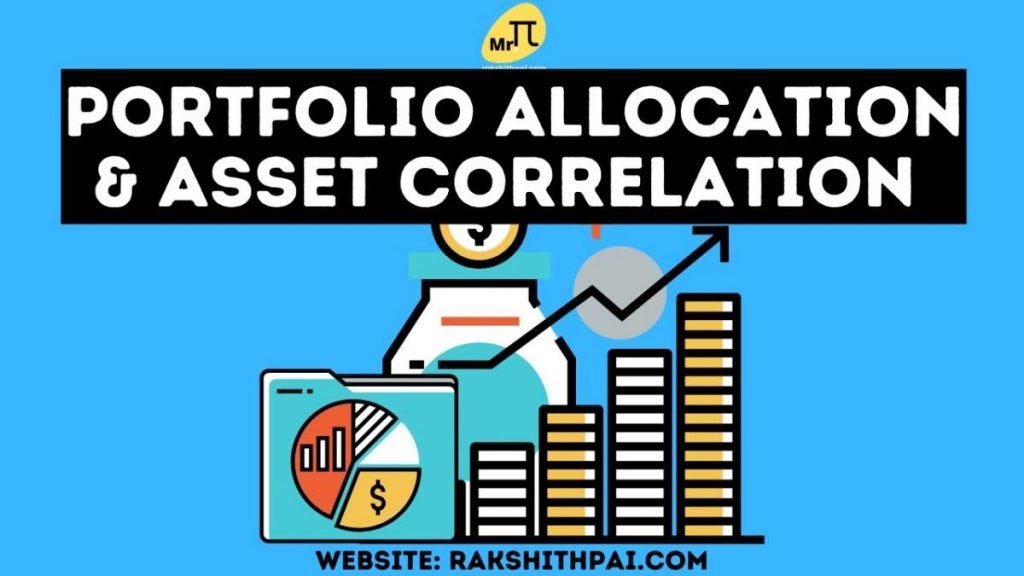Table of Contents
How are the Gold & Stock Market related?
There is a well-established relationship between gold prices and the stock market. Gold prices tend to go down while stock market values tend to go up. If anything, just what does that mean?
Gold’s value tends to decline in tandem with the stock market’s performance, and vice versa. Then why should they put their money into gold? Why does this occur?
Gold is being likened to the stock market despite the fact that the two have no obvious connection. Looking back at the stock market’s and gold’s past performances will help us understand the connection.
It has been observed that purchases of gold coins and gold ETFs increase when the stock market is performing poorly. Despite the fact that investing in gold declines as a percentage of GDP when the economy is struggling, individuals still prefer it over paper money.
Investing in gold versus the stock market is a complex topic with many moving parts. In both cases, investors make purchases at lower prices and hold on to them until they are able to achieve their desired returns. When buyers are wary, gold may be a better bet than investing in volatile stocks. But what precisely do we mean when we say gold is “safe”?
Investors may use gold as a hedge against the stock market. But its significance in the stock market is indisputable. Because of its significance to the country’s economy, it’s difficult to imagine life without it.
How does the Gold & Stock market React?
Gold is often referred to as an “investment safe haven”. However, in what context are we talking about the “safety” of gold? Investors can use gold as a hedge against the volatile nature of the stock market.
Increases in the gold price have a negative effect on the index. But, Is there a link between the price of gold and the stock market? Does an inverse relationship exist?
The stock market and gold can not be directly correlated. Gold and stock market performance throughout time helped shed light on the issue. In general, gold and stocks move in the opposite direction. This shows that when the price of gold goes up, the value of stocks goes down, and vice versa.
As has been witnessed historically, gold tends to do well during times of stock market uncertainty. In all economies around the globe, gold prices have generally followed stock markets. Sales of bullion and gold exchange-traded funds (ETFs) tend to spike whenever the stock market is in a downward spiral.
When a country’s GDP growth rate slows, demand for gold increases sharply. People tend to put their savings into tangible assets like gold during these times. In such an Investment that is denominated in the currency of the country, the investor is not affected. Because one such investment that loses appeal during a recession is the stock market.
Is Gold investment still worth the shine?
Why do the stock market and gold have an inverse relationship?
There isn’t a straight answer because we cannot with full certainty say that there exists an inverse relationship between Gold and Stock Market.
Gold is an asset that moves up and down on its own velocity and on its demand and supply economics. But, the Stock Market is entirely different. There are a lot of external aspects involved for a country’s Equity Market to move in certain directions.
There has long been an inverse link between these two asset classes, and this is not a theoretical phenomenon.
It’s common knowledge that stocks and gold don’t go along the same risk-reward phenomenon. Therefore, gold tends to decline when equity prices rise and vice versa. This gives investors a lot of chances to make money from either asset class, especially when the other is doing poorly.
Where Should I Invest? Gold or Stock Market?
Many successful businesses think about buying gold and stocks as a way to lower or eliminate their risk profile. This is because gold is seen as a safe haven for monetary reserves, while the stock market is seen primarily as a means of making money. Such characteristics of the gold and stock markets influence the actions of shareholders in both.
The fundamentals of the two investment kinds are identical when compared. Both gold and stocks are very dynamic, moving up and down in reaction to a wide range of factors. While gold prices tend to climb, stock market values tend to fall during economic instability. It would be detrimental to the economy if investors shifted their focus from equities to gold during that period.
So, the best place to put your money depends largely on the kind of return you’re hoping to earn. Whether you’re looking for a long-term or short-term investment or something with easy redemption options, Both types of investments are sound, and a diversified portfolio that is carefully organized is the best insurance against economic and financial collapse.
If you’re thinking of buying gold instead of stocks, check out this article on “Best Ways to Invest in Gold.” Here we will provide you with all the information you need to decide if that’s a good decision.
Best Ways to Invest in Gold?
How Inflation affects Equity Investing?
Theoretically, stocks should be protected against inflation because a rise in prices should lead to a rise in nominal revenues, which would then increase share values. However, if companies’ input costs rise, the impact on their bottom lines could be neutralized.
The actual effect of inflation on profits will depend on the industry and whether or not it is able to pass on rising input costs to customers. But if input costs don’t go up at the same rate as sales, the improvement in profit margins could mean that nominal earnings go up.
Inflation reduces the purchasing power of money, so the market often discounts future cash flows at a higher interest rate to account for this. A higher inflation rate causes investors to apply a larger discount rate to earnings, resulting in a lower price-to-earnings (P/E) ratio and, thus, a lower valuation.
How Inflation affects Gold Investing?
Gold has long been considered the best inflation hedge. Inflationary periods tend to lead to a rise in the price of gold. Recent years, however, have seen a breakdown in that link. The gold price in India is determined not by the rate of inflation but by the worldwide price and the value of the rupee.
In the end, though, everything comes down to this. The opportunity cost of storing gold rises when inflation and interest rates are both high. Thus, at a time of high inflationary pressure, interest rates are raised to tackle the situation. That is when we must own gold.
On the contrary, if inflation is low and interest rates are beneficial to economic growth, we must divert away from gold and invest in businesses.
Conclusion:
The majority of investors, as we have seen, prefer gold as a store of value, which is the primary reason for the negative correlation between gold and the stock market. Investors are panicking and pulling their money out of the stock markets without waiting for a recovery. They start looking for an alternative that would provide them with security or growth, such as gold.
The fact that their reactions to other economic factors are often different, if not opposite, may also explain why they don’t like each other right now.
Despite widespread opinion to the contrary, the stock market has a negligible effect on the gold market. Gold and stock prices typically fluctuate in opposite directions, so there is little reason to expect the gold-stock link to be stable over time.
For More Information, Check this Video:
Disclaimer: All the information on this website is published in good faith and for general information purposes only.









